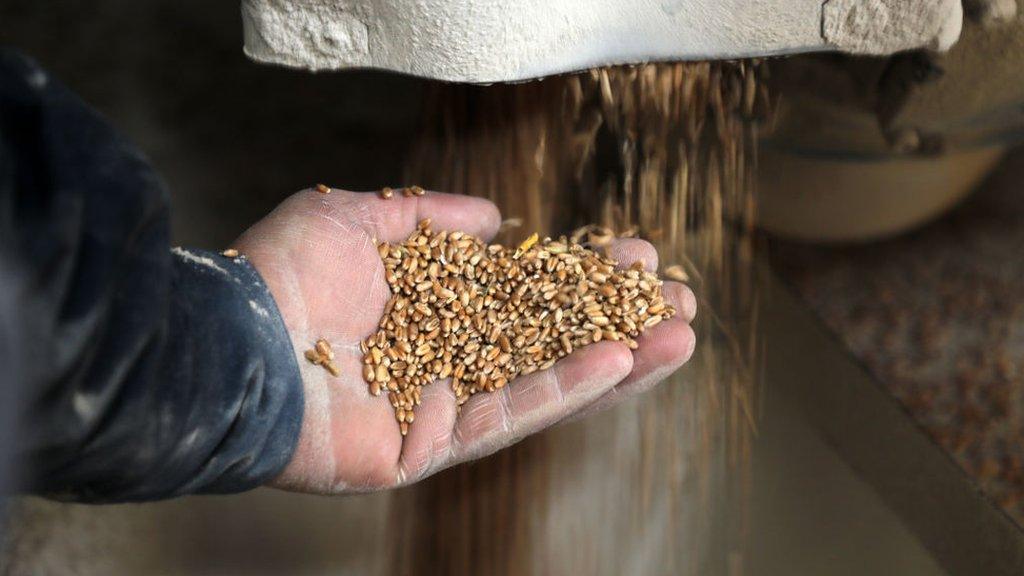Cost of living: Farmers warn food prices are unlikely to fall
- Published
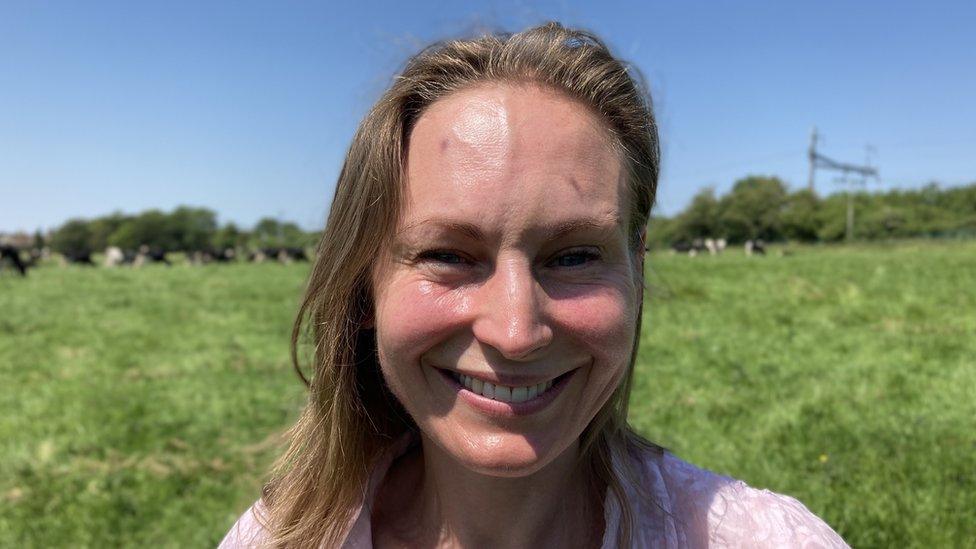
Dairy farmer Ceri Cryer says she is getting paid less for milk than it costs to produce it
Farmers in Wiltshire are warning food prices will not fall any time soon because of the costs their industry is facing.
Food prices have been pushed up in part by the Russian invasion of Ukraine.
Much of the food now on the shelves was grown when crop and fertiliser prices were at their peak a year ago, meaning higher costs for farmers and shoppers.
The government said it was working to provide farmers more stability and to boost their exports.
"If the price drops now, it won't cover the cost of the fertiliser it's put in," said Rob Vines, an arable farmer from Crofton Farm, near Marlborough.
Russia was a leading exporter of fertiliser before sanctions began.
Some had expected food costs to drop as the price of fertiliser came down earlier this year, but Mr Vines said "people are missing the point".
"The expensive fertiliser we bought last year is growing this crop.
"This crop was planted last year. It hasn't even been harvested yet.
"That money hasn't filtered through the system yet for the fertiliser," he said.
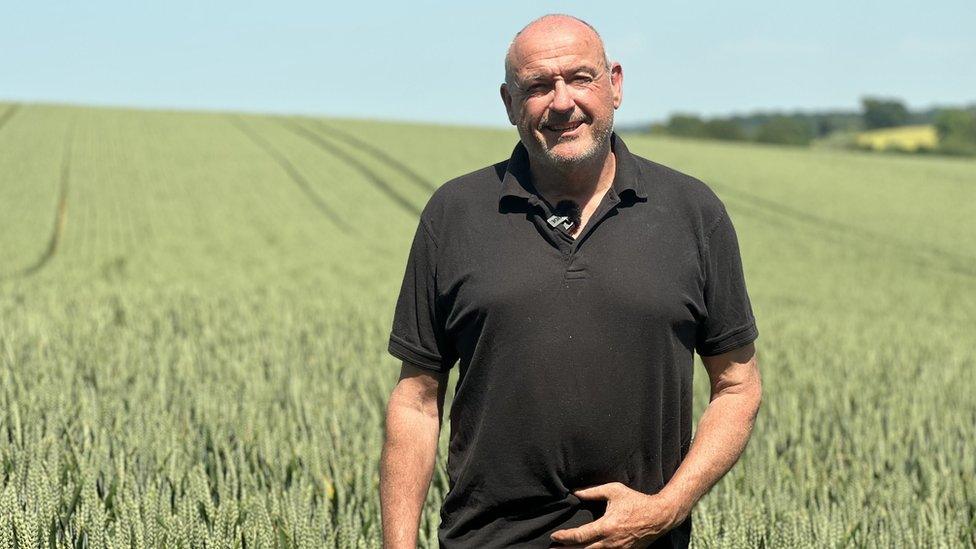
Rob Vines is a mixed farmer of animals and arable crops
A year ago, farmers told the BBC that costs of fertiliser, diesel, energy bills and feed had gone "through the roof".
"The costs have not come down, but the price we're paid for our milk has come down," said Ceri Cryer of Brinkworth Dairy near Malmesbury.
"Now we're producing milk for a cost higher than the price we're paid for the milk," she added.
Ms Cryer explained farmers have to pay costs to ensure high welfare for the animals and to protect the environment.
She said if farmers have to continue producing milk for less than they are paid for it, "they're not going to be keep on doing it".
"I think we probably do need to accept that prices are going to be higher," she added.

Sally Robinson said people need to pay more to allow farmers to keep high standards
Sally Robinson of Boyds Farm, in Gastard, farms arable crops including wheat, barley, beans and potatoes, and has pedigree Hereford bulls and cows for breeding.
"It needs to be a realistic price for the input and the labour. Getting farm labour is difficult and we as farmers have to change what we do in order to survive.
"If we don't produce it here, it has to bought it from abroad," adding that would mean a drop in standards people expect.

Follow BBC West on Facebook, external, Twitter, external and Instagram, external. Send your story ideas to: bristol@bbc.co.uk , external
- Published6 March 2023
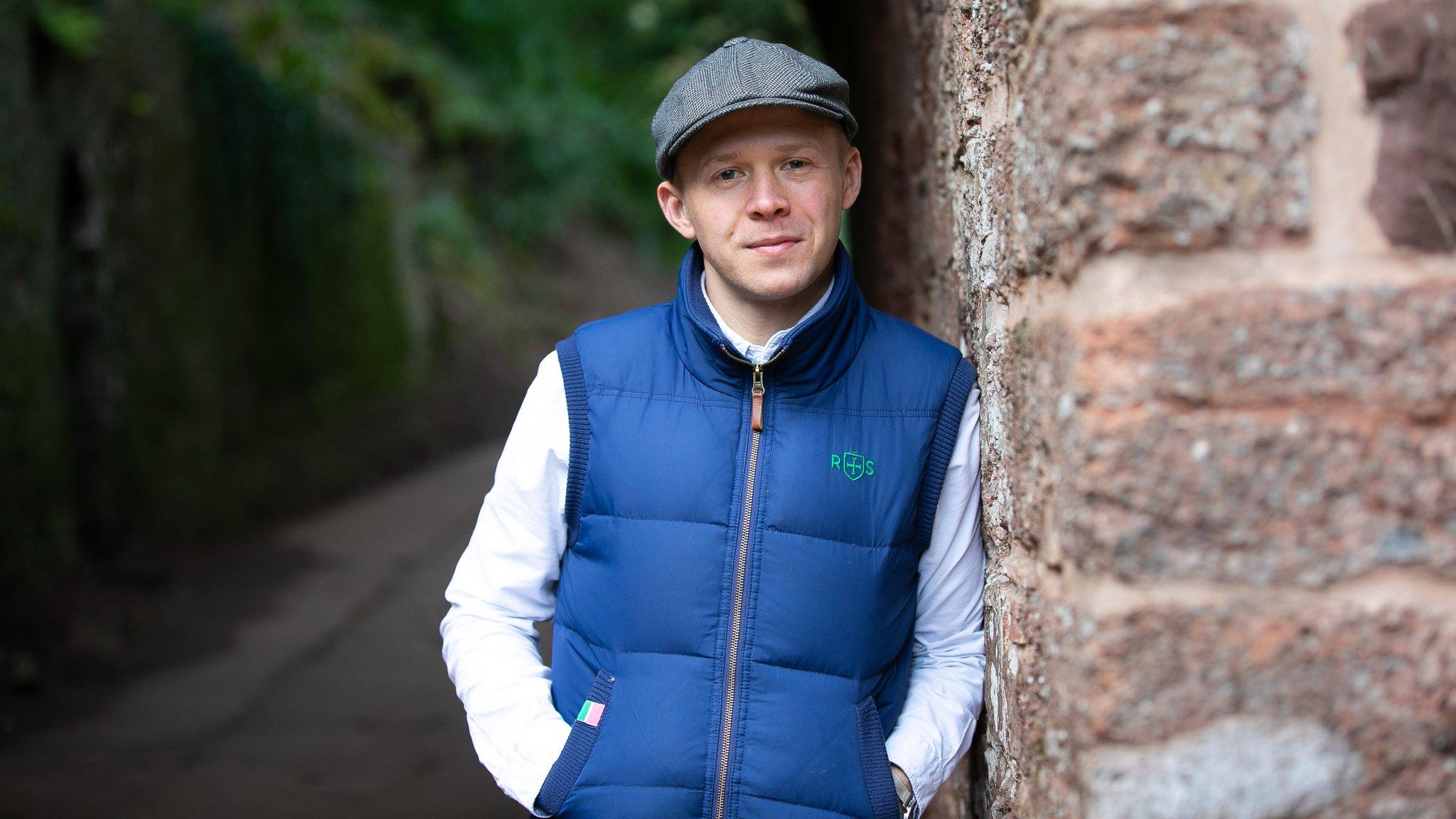
- Published30 June 2022
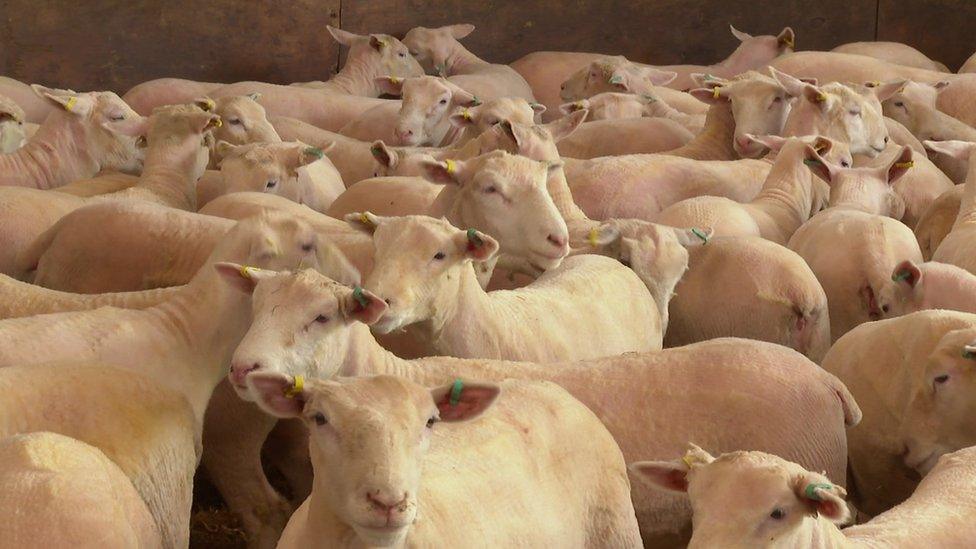
- Published17 January 2023
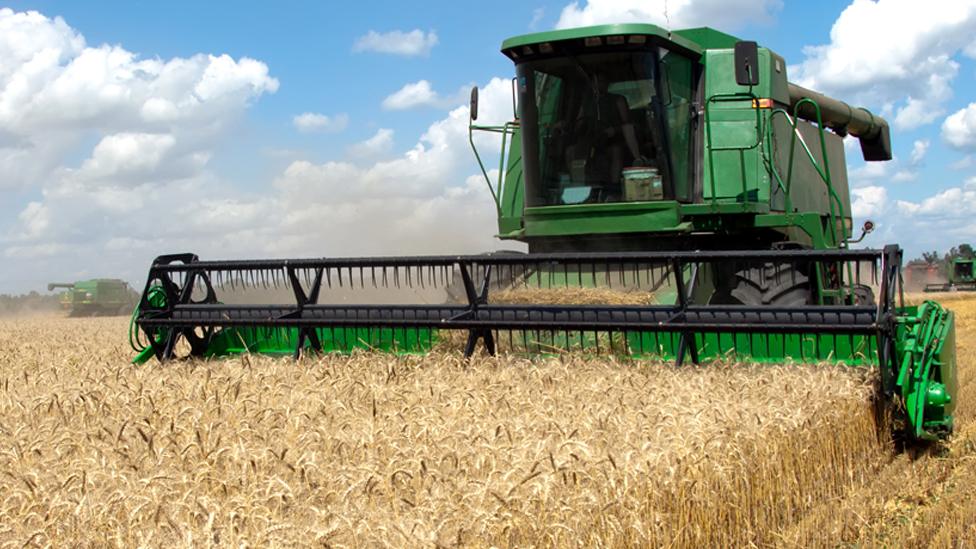
- Published7 March 2022
